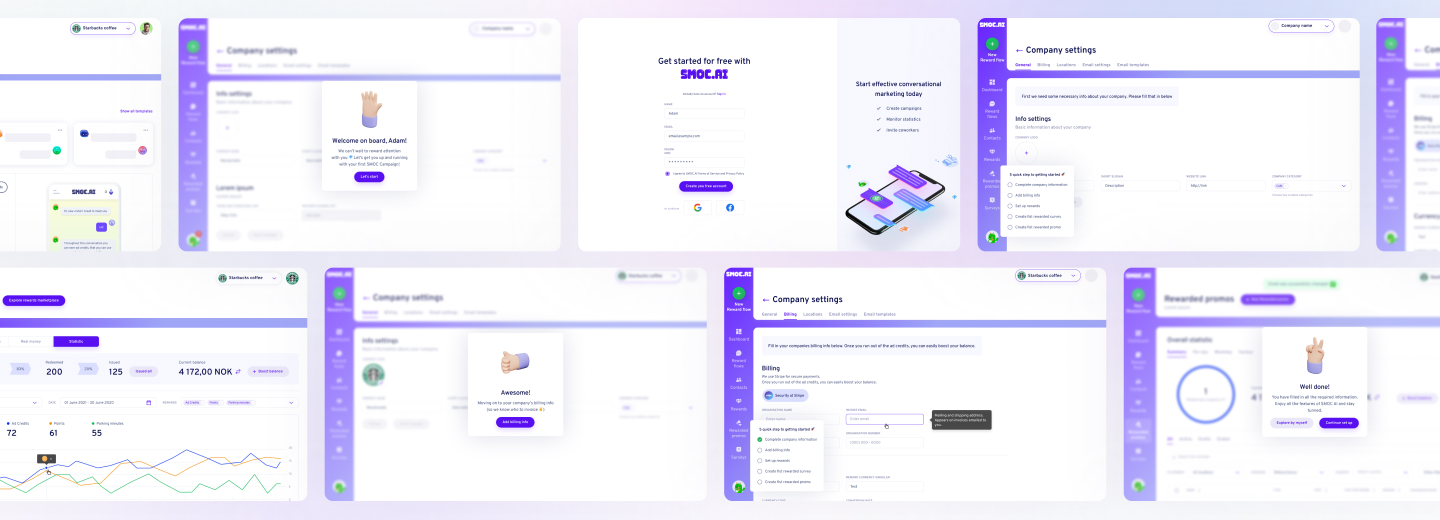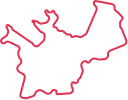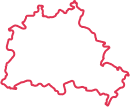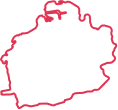The technological environment is changing faster than ever before, and it presents millions of opportunities for entrepreneurs to develop new software. The digital tools we use must be smarter, faster, and more intuitive than ever as we are in 2025, particularly within the domains of AI, remote work, cybersecurity, and personalized experiences.
You may be an experienced developer or a first-time founder, but selecting the right idea is the first and most crucial step on the way to creating a successful software startup. And so that you can get inspired and be ahead of the curve, we have reviewed the 15 best software startup ideas that demonstrate high potential in 2025. Not only are these ideas kept in line with the present market trends, but they are also designed to respond to the real-world needs in a scalable and creative manner.
All right, then, let’s dive in the new software startup ideas.
what’s in the article
- What Makes a Good Software Business Idea
- Top Software Startup Ideas
- How to Consider the Software Idea
What Makes a Good Software Business Idea
An excellent software business idea is not simply a smart concept, but it is also a solution to an existing problem. The best software startup ideas in the current competitive market, thus, are those that address real needs, have a clear value proposition, and are enabled by a scalable technology. That is only the start, though.
A good software idea must possess the following characteristics to stand out:
- Market Demand: It should be evident that there is an audience that needs a solution. Your new software ideas should address an unmet need in the market, whether it is businesses seeking to automate workflows or individuals willing to have superior productivity tools.
- Scalability: Great software startups are not only useful, but they also grow. The best software ideas for startup that can scale to more industries, users, or geographies is much more valuable than a specialized tool with a narrow audience.
- Competitive Edge: Your idea must add something new to the table. This may be a special feature, improved functionality, or a more convenient interface that will provide you with an advantage over current players.
- Monetization Potential: Subscriptions, licenses, freemium models, SaaS applications, or otherwise, a good idea has an obvious way to make money.
- Tech Feasibility: It should be critical that the concept can be constructed using the tools and expertise available. It is good to be ambitious, but reality prevails in the long term.

Looking to Build an MVP without worries about strategy planning?
EVNE Developers is a dedicated software development team with a product mindset.
We’ll be happy to help you turn your idea into life and successfully monetize it.
Top Software Startup Ideas
Contract Review for Real Estate
A lot of legal paperwork usually accompanies real estate transactions, including purchase contracts, lease agreements, and addendums. The average consumer, particularly a first-time homeowner or small investor, would lack the legal training to decipher the contents of these documents, and the expense of engaging a lawyer on each transaction is prohibitive and time-wasting.
Main Idea:
Contract review tool is an AI-powered software that scans real estate contracts, identifies risks, marks important terms, and provides an explanation of legal terms in plain English.
Industry:
Real Estate, LegalTech, PropTech
Popular Examples:
- LexCheck – Automates legal due diligence in M&A deals
- DocuSign CLM – Provides contract lifecycle management including legal automation capabilities
Future Outlook:
The industry of real estate industry is getting more digitalized, so this tool might become the norm among realtors, mortgage brokers, and buyers. It will be easily integrated with e-signature platforms and real estate CRMs to become a part of every transaction.
Reusable Packaging Tracker for eCommerce
Online shopping causes an enormous volume of packaging waste. As environmental consciousness grows and regulations tighten both in the EU and elsewhere, retailers are looking to reusable packaging and to go green. Nonetheless, it is considerably difficult to monitor such packages across several usage cycles.
Main Idea:
A cloud software platform that manages reusable packaging by lifecycle – when it ships, when it returns, and what is its cycle count.
Industry:
Sustainable Technology, eCommerce, Logistics
Popular Examples:
- Loop by TerraCycle – Reusable packaging solution to big retailers
- RePack – Collaborates with fashion companies to deliver goods in reusable packages
Future Outlook:
This software might become a must-have among DTC brands, fulfillment centers, and third-party logistics (3PL) companies. With the increasing focus on environmental reporting, the packages becoming efficient and carbon-saving a requirement, this is a great B2B SaaS opportunity.
Tax & App for Freelancers in the EU
The self-employed workers in the European Union face complicated tax regimes particularly cross-border freelancers. Whether it is learning the specifics of local VAT regulations or digital submission of invoices, compliance can be daunting, particularly to creatives, consultants and gig workers unfamiliar with accounting.
Main Idea:
A translation app to make EU tax declarations easier for freelance workers, these startup ideas for software engineers would allow simplification of tax declarations in EU, features such as VAT monitoring, creation of invoices, management of expenses, and automated tax declarations according to each country.
Industry:
FinTech, LegalTech, Freelance Economy
Popular Examples:
- Taxfix – Streamlines the process of tax filing in some EU states
- Fiskl – Invoicing and accounting for freelancers everywhere
- Indy – Freelance business organization and tax tools
Future Outlook:
As freelancing becomes more popular and digital tax systems become more widespread in the EU, this app might become the financial tool of location-independent workers of choice, particularly those who have clients in several countries.
Grant Writing Assistant
Grants are commonly used by nonprofits, researchers, and startups. However, grant writing is a competitive, time-consuming activity that also requires strict language and formatting. Lots of organizations lose their funding opportunities due to lack of time or ability to prepare convincing applications.
Main Idea:
It is an AI-based assistant that guides the user through finding the right grants, organizes proposal structure, and creates powerful and personalized content with the help of templates and best practices.
Industry:
Nonprofit Tech, EdTech, Generative AI
Popular Examples:
- Grantable – AI-based grant writing tool for nonprofits
- Instrumentl – Grant discovery and management platform
Future Outlook:
Grant automation may even the playing field when it comes to small organizations as AI writing tools become more mature. The tool has the potential to grow into providing templates covering various countries, languages, and fields of funding, and become an essential instrument of the international market research and nonprofit community.
Certification Learning Apps
Degrees are overrated in the contemporary labor market, especially in the technological, project management, and marketing fields, where certifications are more useful. Career changers and professionals want effective, focused methods to study for exams without having to dedicate themselves to costly bootcamps or college classes.
Main Idea:
The software company ideas of a mobile-first learning app aimed at assisting people in preparing to pass professional certifications, using interactive lessons, mock exams, AI-powered study schedules, and progress statistics.
Industry:
EdTech, Career Development, Mobile Learning
Popular Examples:
- Udemy- Has certification preparation courses
- Coursera -Collaborates with certifying institutions
- Pocket Prep -Professional license exam prep
Future Outlook:
The certification training market size in the globe is projected to attain $12.7 billion by 2027. As skills-based hiring grows in demand, certification apps may become the fundamental learning tools used by young professionals, remote employees, or even high school graduates. Gamified experience and AI-powered personalization will help ensure learners remain successful and engaged.
CRM for Mobile Auto Repair Businesses
The mobile auto repair industry is in its rise because customers want on-demand services at home or in the workplace. Yet, a good amount of these small businesses continue to use manual scheduling, spreadsheets, or old software to manage customers and operations.
Main Idea:
The startups business ideas of a CRM system designed specifically with mobile mechanics in mind, featuring capabilities such as appointment scheduling, customer history, invoicing, parts inventory, and GPS dispatch.
Industry:
Auto Services, Field Service Software, CRM
Popular Examples:
- Shopmonkey – Auto repair shop management
- Housecall Pro – CRM (non-auto repair specific) in the service industry.
Future Outlook:
A specialised CRM could monopolise this neglected market. It can easily become the standard tool of small auto shops and independent mechanics with mobile optimization and integration with vehicle diagnostic systems or payment processing systems.
Shopify/WordPress Plugins
Shopify and WordPress are the platforms that millions of online businesses depend on, yet many of them face the problem of functionality gaps. There is a constant need of plugins and apps that solve a specific task or enhance performance.
Main Idea:
Develop and market high-quality or even free plugins that address a targeted issue, such as AI product tagging, SEO enhancers, one-click upsells, or local delivery scheduling.
Industry:
eCommerce, Web Development, SaaS
Popular Examples:
- Yoast SEO (WordPress)
- Klaviyo (Shopify email marketing)
- ReConvert (Shopify upsell plugin)
Future Outlook:
WordPress is used in 43% of the entire websites around the world. Plugin businesses have low development costs, and the potential to generate recurring revenue, which makes them able to scale fast. In 2025, AI and personalization features will be on demand.
Job Application Tracker
Candidates usually apply to a few dozen positions on various platforms, which results in poor organization of tracking, follow-ups are forgotten and efforts are sometimes doubled.
Main Idea:
A job application organizer which stores all job applications in a single platform- auto-fills job applications, keeps track of application deadlines, stores resumes and reminds the user to follow-up on applications.
Industry:
Career Tech, Productivity, HR Tech
Popular Examples:
- Huntr – Graphical job tracker
- Teal – Application manager and resume builder
Future Outlook:
Half of job-seekers forget where they have applied (Indeed Survey). The more competitive the job markets get and the more AI filtering is employed, the more structured job search management will be a necessity, particularly among freelancers, students, and mid-career switchers.
Booking Systems
Whether it is a salon, tutoring, healthcare, pet grooming, and many more- thousands of small businesses require up-to-date, customizable booking systems.
Main Idea:
Flexible booking engine that supports payment, notifications, cancellations and staff management – can be customized to cater to niche markets.
Industry:
SaaS, SMB Tools, Services Marketplace
Popular Examples:
- Calendly – Generic scheduling
- Fresha – Salons and spas
- SimplyBook.me – Universal booking
Future Outlook:
40% of service-based businesses don’t utilize a booking system (Clutch). Booking tools specific to a niche (e.g., tattoo studios, mobile wellness, dog trainers) will keep on popping up. The appointment booking software market is expected to reach $546 million by the year 2026. Such features as AI time optimization and auto-rescheduling will even increase its value.
Digital Menu Builder for Cafes
Digital menus are the usual thing after the COVID, yet many small cafes are stuck with PDFs or unfavorable solutions. There is a requirement of beautiful, user friendly and updatable menus which represent brand identity.
Main Idea:
A no-code platform enabling cafes and restaurants to create interactive and mobile-optimized digital menus: with photos, allergens, QR codes support, and time-limited offers.
Industry:
Hospitality Tech, FoodTech
Popular Examples:
- GloriaFood -Online ordering + digital menus
- Menufy -Restaurant ordering system
Future Outlook:
The use of digital menus in the food service industry grew by 87% (Statista). Smart upsells, POS system integrations, and real-time inventory updates are another thing to expect. It could be sold as a white-label to restaurant consultants or POS vendors.
Rental Equipment Management Tool
Whether it is camera equipment or construction equipment, a lot of rental companies today manually manage inventory and reservations, which leads to overbookings, losses, and inefficiencies.
Main Idea:
It is a cloud-based system that allows managing rental inventory, bookings, deposits, maintenance schedules, and client contracts all in a single dashboard.
Industry:
Asset Management, Logistics, SMB Tools
Popular Examples:
- Booqable – Equipment rental software
- EZRentOut – Rental software (multi-industry)
Future Outlook:
The equipment rental market is projected to achieve a high of $145 billion by 2030. There is increasing demand in mobile-first tools that connect to eCommerce, barcoding, and GPS tracking – particularly in event, AV, and construction rentals.
AI Content Generator
One of the most critical challenges is the ability to create content at scale: blogs, captions, ads, etc. by businesses, in particular, SMBs. AI content tools provide a quick and affordable alternative.
Main Idea:
Content generation platform (powered by AI development) that specializes in niche content 100% customizable by industry – e.g. local SEO blogs, real estate listings, or product descriptions.
Industry:
Generative AI, MarTech, Content Creation
Popular Examples:
- Jasper – artificial intelligence copywriting
- Copy.ai – AI text creation
- Writesonic – Blog and SEO writing
Future Outlook:
Industry-specific, highly specialized content tools will develop – e.g. AI to write legal briefs, insurance content, or technical manuals. AI writing market to hit $9.7 billion by 2028 Voice and video content generation will parallelfully increase as well.
RegTech Compliance Platform
Compliance is becoming more complicated and expensive particular in finance, health and data-driven industries. Paper-based compliance monitoring places organizations in a legal jeopardy.
Main Idea:
RegTech SaaS platform automating compliance procedures: policy updates, audit trail, documentation and alerts, focused on small and mid-sized business.
Industry:
RegTech, FinTech, LegalTech
Popular Examples:
- ComplyAdvantage – AML compliance
- LogicGate – GRC automation
Future Outlook:
The Global RegTech market is expected to reach $ 29 billion by 2027. In real time, compliance monitoring and predicting risks will be feasible with the AI. Niche verticals will be dominated by tools that can adjust to new local regulations (e.g., GDPR, HIPAA, ESG).
Online Portals
The software innovation ideas of custom online portals bring clients, students, or employees into the center of communication, resources, and tasks organization. A lot of SMBs and schools continue to utilize disparate solutions.
Main Idea:
No-code portal builder: A small business, school, or consultant can build a secure login, file sharing, task tracker, messaging, and notification portal.
Industry:
SaaS, EdTech, Productivity
Popular Examples:
- Moodle -Learning portals
- Clinked Agency client portals
Future Outlook:
There will be increased demand of branded secure and mobile accessible portals. The use of portal software is in increasing demand, particularly within remote working and online education settings. AI assistants will be integrated with such tools as Google Workspace or Zoom, which will increase adoption.
Vertical B2B Marketplace
General purpose marketplaces such as Amazon or Alibaba can fulfill very large audiences, yet most industries require significantly more specialized marketplaces to buy/sell, to qualify vendors, or to achieve compliance.
Main Idea:
Startups business ideas of a vertical B2B marketplace focused on a particular industry – e.g. medical devices, construction materials, ethical fashion – with listings, RFQs, escrow payments and vetting.
Industry:
B2B Commerce, Marketplaces, Industry SaaS
Popular Examples:
- Faire – B2B marketplace
- Knowde – Chemical and material marketplace
Future Outlook:
Specialist markets will take over the industries that the giants have under-invested in. Providing profound customization, compliance tools, and integrated logistics will be the distinguishing factors in 2025.

Proving the Concept for FinTech Startup with a Smart Algorithm for Detecting Subscriptions

Scaling from Prototype into a User-Friendly and Conversational Marketing Platform

Need Checking What Your Product Market is Able to Offer?
EVNE Developers is a dedicated software development team with a product mindset.
We’ll be happy to help you turn your idea into life and successfully monetize it.
How to Consider the Software Idea
Before diving into development or pitching your vision, it’s crucial to validate and shape your software business ideas thoughtfully. Good software product ideas aren’t all about being innovative but rather, addressing a need that is faced by real people. Then, basing your idea on the real needs you can observe on the market and being focused on what you are doing, you can develop something that has a potential to make a difference and evolve.
Define Market Problems
The most successful software solutions begin with a clear insight into the pain points in the market. Talk with prospective users, look at reviews of comparable tools, and investigate gaps in the industry. Are individuals fighting with the inefficiency, lack of features, or stagnant tools? What you want to do is to find a real need that can be addressed by your software in a better or cheaper way than the existing solutions.
Keep It Simple at First
Complexity will destroy momentum. In testing your software business ideas, begin small. Emphasis on the development of a minimal viable product (MVP) that solves the main problem without extra functions. The simplicity enables you to get to market sooner, rapid fire test assumptions and modify in response to user input. It should be thought of as placing a solid foundation then constructing the rest of the house.
Focus on One Type of User
In the attempt to appease everybody, there is the tendency of having a diluted product. Rather, specify your main user persona: small business owners, remote teams, students, or another narrow audience. Customize your design, messaging and functionality to address their particular needs. You can always grow into other groups after you have gained momentum with one. But it begins by winning one audience at a time by really solving their problem.
The best startup idea is one that addresses a specific, real-life-issue of a very narrow audience – think automation tools, AI assistants, or industry-specific SaaS platforms.
Talk to your potential users, build a rough prototype or minimum viable product and collect feedback by survey, interview or pre-launch signups.
Yes, SaaS can be very profitable when you aim at a defined market problem, provide a scalable value, and have low churn and good customer support.

About author
Roman Bondarenko is the CEO of EVNE Developers. He is an expert in software development and technological entrepreneurship and has 10+years of experience in digital transformation consulting in Healthcare, FinTech, Supply Chain and Logistics.
Author | CEO EVNE Developers


















